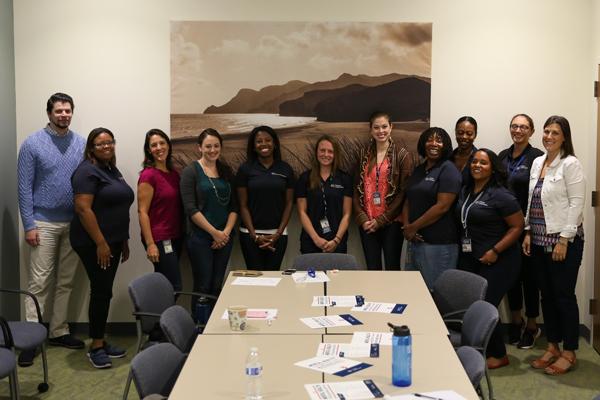Mental Health Services started a new weekly discussion series on common emotional well-being topics this month.
Students can attend group discussion sessions led by MHS counselors that address topics like anxiety management, relationship skills and balance. These discussions are in addition to the group counseling sessions MHS offers, and experts in mental health said that the program could help reduce the stigma around mental health counseling.
Gillian Berry, interim director of Mental Health Services, said she received feedback from students who were ambivalent about making the commitment to ongoing counseling but who demonstrated interest in getting support through the center, which led her and other clinicians to launch the discussion series.
“The discussion series is designed to address such issues by providing a venue where students can access another set of MHS services that are easy to connect with and take minimal commitment but are still a simple way to get some support,” Berry said.
MHS counselors chose the discussion topics by compiling situations that students who attend counseling sessions said they most commonly face and considered other students’ recommendations, Berry said.
The discussions are scheduled once a week from now until April with six different topics for students to choose from. The free sessions are held in the Colonial Health Center, and students do not need to pre-register to attend.
The program will be held again next academic year if students demonstrate interest in the sessions, Berry added.
Berry said these sessions differ from group counseling sessions because group counseling requires more commitment from the participants and builds on concepts from session to session.
Commitment levels can vary for discussion participants: Students can attend one, several or all of the sessions, Berry said. Students must not share personal details from the conversations, in order to maintain participants’ privacy, she added.
“As with all group discussions, we ask each member of the discussion to respect the privacy of their peers by not disclosing anyone else’s presence in the space or their personal information,” Berry said.
The counseling center has hired 10 new staff members since this past spring, including counselors that specialize in working with minority and veteran students. These hires came after turnover at the highest level in MHS, when Silvio Weisner, the former director of MHS, stepped down suddenly last September after officials found he was not licensed to practice psychology in D.C. A year later, the position still has not been filled.
Experts at other universities’ counseling centers said GW’s program could encourage more students reach out to MHS and could reduce the stigma around mental health counseling.
Alejandra Acuña, an assistant professor and clinical social worker at California State University, Northridge, said GW is proactive in offering a discussion series because it provides both peer support and professional counseling. Addressing topics in a group environment makes the issues “more universal and less stigmatizing,” she said.
“You are going to get the double whammy of professionals who are skilled at dealing with mental health issues as well as the whammy of peer support,” she said. “The truth is we feel much more comforted knowing that other people like us are going through the same thing and learning how they are coping with this.”
Tina Bryant, clinical director of the University of Kentucky’s counseling center, said narrowing topics that students can choose from to talk about can make the discussions more applicable.
“When you have a specific topic, people can feel comfort in going into the group knowing that everybody in there has some understanding of what they are going through, and that can be really powerful and very helpful,” Bryant said.







